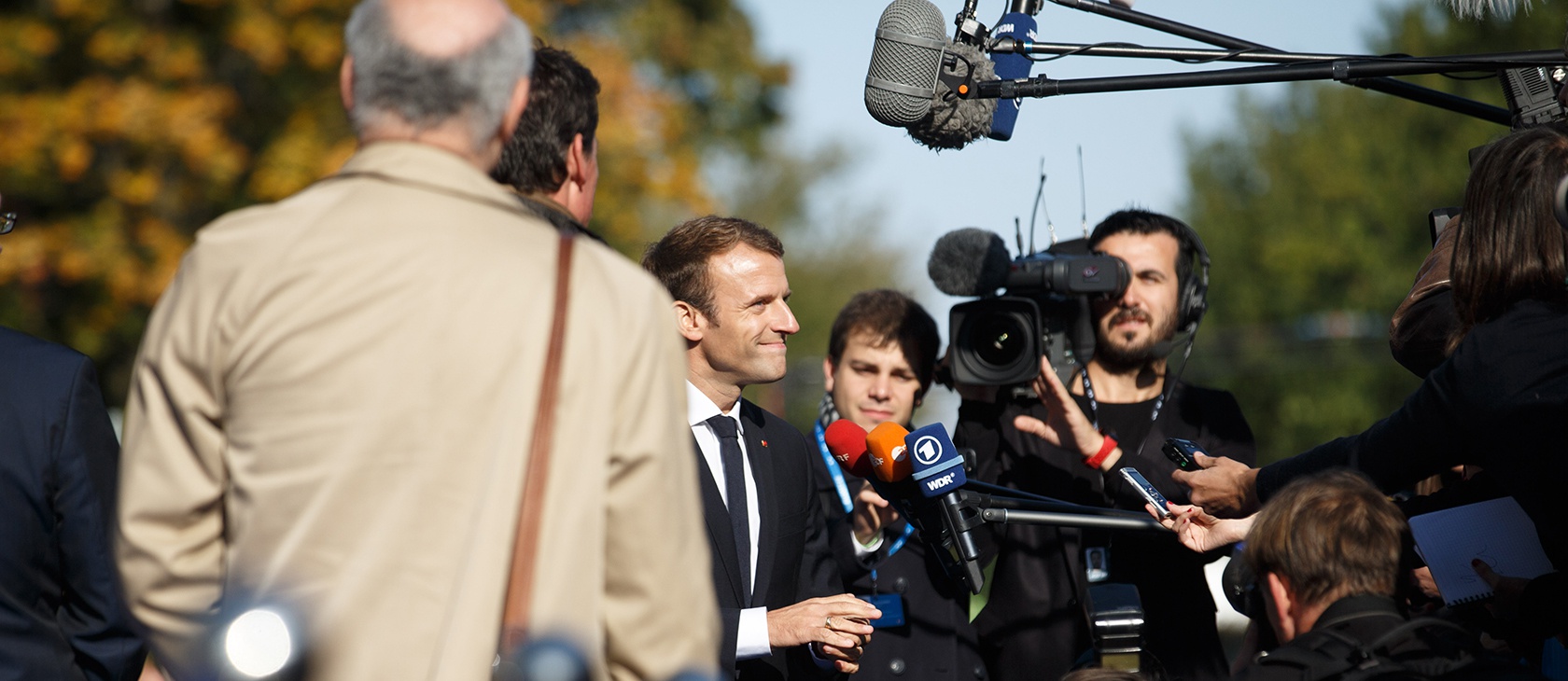On January 3, during his first press event of the new year, French President Emmanuel Macron presented a proposal intended to "protect the democratic life" of France from "fake news." According to the French president, so-called fake news constitutes a threat to democracy itself. “We are going to develop our legal means of protecting democracy against fake news,” he said in a video posted on Twitter.
These proposals would mandate greater transparency from internet portals about the sponsored content that they publish during an election season. The identity of the advertisers and those who finance them would have to be clearly indicated. The amount of money spent for such content would be limited. It would also be possible for judges to remove fake news stories, delete the links to them, block the sites, or close the offending users’ accounts. He also announced that the Higher Audiovisual Council (CSA) would be given the power to fight against any attempt by television services controlled or influenced by foreign states to destabilize society. This refers to Russian-state-owned francophone media outlets, specifically Russia Today and Sputnik News, which are considered Russian propaganda tools.
“If we want to protect liberal democracies, we must have strong legislation,” Macron said.
Even though the details of the new law have not been fully fleshed out, the idea of the state censoring fake news has already been widely criticized in France and abroad. The political opposition said that France is sliding towards an Orwellian regime, and some journalists observed that Macron’s law may decrease diversity of opinion and limit the freedom of speech. “Democracy is based on neutrality of media outlets, which does not really exist when an overwhelming majority of journalists militate for the Left,” writes the right-wing website La Gauche m’a tuer. A socialist deputy, Jean-Luc Mélenchon, in his turn, says that it is evident that the proposed legislation risks to become liberticide.
In the context of fighting against falsehood in the media, another important question arises: “Who is going to decide whether a piece of information is false? The judges from Syndicat de la Magistrature [judges trade union closely related to the Left] or the Government?” asks Marine Le Pen. “Who will decide what is truth?” concurs Mélenchon.
The French president is not alone with his ideas to limit foreign information in his country. On Monday, the EU assembled a 29-person panel to investigate the problem of “fake news” and present a plan for a coordinated response to the European Commission by April. On Tuesday, the British Parliament held a hearing on “fake news.”
“Desire for truth is part of human nature itself”
Some nations have already taken action. Lithuanian media authorities have suspended broadcasting by the Russian television chain, RTR Planeta, for “inspiring war sentiments and for hate speech.” In Sweden, almost simultaneously with Macron, the prime minister, Stefan Löfven, announced a stronger intelligence initiative to protect Swedes in the upcoming election from Russian and other foreign propaganda. “He said the new Swedish agency would be created ‘immediately’ and would be responsible for bolstering the ‘psychological defense’ of the Swedish public by ‘identifying, analyzing, and responding’ to ‘external influence’ campaigns,” one press account reported.
Even though regulations aimed at diminishing the impact of foreign propaganda may seem advantageous to many – at least, at first glance – it is entirely possible that they will open the way for the government to abuse its power by attacking its political rivals. Labeling other opinions “fake news,” “propaganda,” or “hate speech” may lead to severe legal consequences and may have a seriously adverse impact upon diverse views and sources of information, a crucial pillar of any democracy.
The democratic political system already has an effective mechanism to cope with fake news: Courts allow people to sue for libel. This should be considered a free-market response to certain varieties of fake news. Lawsuits, which are argued in the open before independent courts and are often covered by the media, guarantee a higher level of objectivity and transparency than the arbitrary decisions of politicized state authorities carried out behind closed doors.
“Desire for truth is part of human nature itself,” wrote Pope John Paul II in his 1998 encyclical Fides et Ratio. People have both a will and intrinsic capacity to search for the truth. This is known as reason, the guiding principle of Western civilization since the time of Socrates. Therefore, people do not have to rely upon political authorities to help them sort out accurate news sources from false ones. They are able to do so on their own, provided – crucially – that they have access to a variety of diverse sources of information.
“Rather than make use of the human capacity to know the truth, modern philosophy has preferred to accentuate the ways in which this capacity is limited and conditioned,” continued the saintly Pope John Paul II. Instead of floating along this philosophical dead-end – and possibly empowering the government to restrict our freedom of the press – we must rather acknowledge the profound capabilities of the human intellect and allow them to exercise the liberty of thinking, and deciding, on their own.
Featured image used under Creative Commons license (CC BY 2.0), some changes made.



